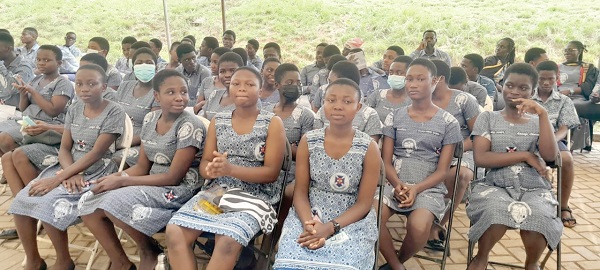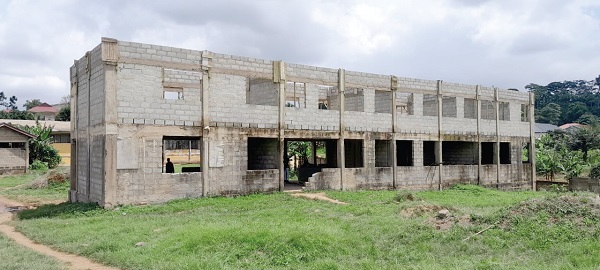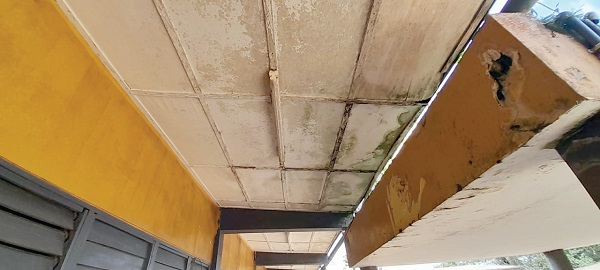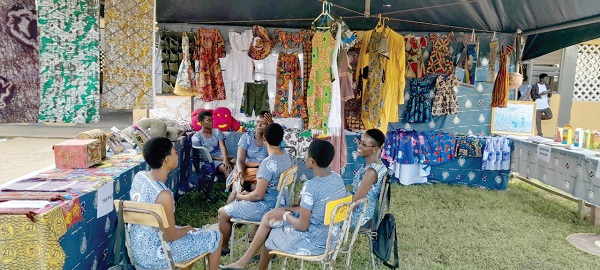
Aburi Presby SHTS reel from infrastructure challenges
The Presbyterian Senior High Technical School at Aburi in the Akuapem South Municipality of the Eastern Region is currently facing many challenges, making it difficult to teach and learn.
Advertisement
Some of the problems are the lack of a library, an ICT centre, a fit-for-purpose science laboratory, an uncompleted girls’ dormitory, limited classrooms as well as teaching and learning materials, laptops for teaching and research, duty post vehicle and an ill-equipped workshop.
Others are limited furniture, the absence of a fence wall to protect students against intruders and other criminals and the absence of metal beds to protect students against bed bugs
To make matters worse, teachers do not have residential accommodation. As a result, all the teachers stay off campus and trek to the school daily, except for the headmistress and a few other masters.
These challenges came to light at the 12th speech and prize-giving day which was held at the school recently.
Challenges

A stalled one-storey classroom block
At the event which was on the theme "Preparing the next generation for the future: A shared responsibility for stakeholders in secondary technical schools", the Headmistress of the school, Joyce Appiah, devoted much of her time to enumerate the challenges facing the school.
She said the challenges had made it difficult for teaching and learning, especially for the National Science and Mathematics Quiz (NSMQ) competition.
The teachers, Mrs Appiah also indicated, had to face the brunt of the problem because they had to stay outside the school and attend classes daily.
She, therefore, appealed to all stakeholders, especially the government and other benevolent organisations dedicated to the welfare of schools, to come to their aid.
She said despite such challenges bedevilling the school which was established in 1991 as an experimental school and upgraded to its current status, it had been progressing academically.
For instance, Mrs Appiah told the gathering that students who participated in the NSMQ competition were able to reach the quarter-final stage in 2016 when the school participated for the first time.
She said the school was also adjudged the second-best Presbyterian Senior High School in the country after the Presbyterian Boys SHS (PRESEC) at Legon.

The ceilings of the school's science laboratory are in a bad state
WASSCE performance
At the West African Senior School Certificate Examination (WASSCE) level, the headmistress stated that eight students had 4As, seven students had 5As, two students had 6As and one student had 7As in 2019.
She explained that despite the school's challenges, teachers were committed and dedicated to imparting knowledge to the students and that the school was also doing well in the NSMQ competition.
She described the students as practical-oriented because they were eager to learn and make good grades to climb the academic ladder higher.
Mrs Appiah commended the government for assisting with the infrastructure of the school, such as the construction of a girls’ dormitory, classroom blocks and boys’ dormitory, among others.
She said some of the projects, nonetheless, had been delayed and, therefore, urged the contractor to speed up work for its completion.

Some innovative products made by some of the students on display
Addressing challenges
The Deputy Minister of Education in charge of Technical, Vocational, Education and Training (TVET), Gifty Twum Ampofo, who was happy about the current performance of the school, said the government was committed to addressing the challenges of senior high schools in the country.
She stated that the government was also fully committed to nurturing the potential of the youth, which was the main reason the government had introduced STEM and TVET educational institutions in the country.
Ms Ampofo indicated that parents and guardians had a responsibility to teach their children things like moral values, cooperation and empathy, among others, as everything was not to be taught in schools.
She said despite the current challenges the school was facing, the academic performance of the school was good and that students needed to continue with such excellent work.
The Deputy Minister in charge of TVET said some parents were doing very well while others were not doing well in cooperating with teachers to ensure that children are moulded into responsible citizens.
Shared responsibility
Ms Ampofo noted that the future of the children was a shared responsibility, with the number one beneficiary being the children, second the parents and lastly the teacher.
"We have a lot of resources in the country. However, the ultimate resource will be to develop without any class and limitations," Ms Ampofo stated.
The Aburihene, who is also the Adontenhene of the Akuapem Traditional Area, Otoobour Djan Kwasi II, who acknowledged the need for the school to be supported, said the school was doing well academically.
He urged the government to assist the school in terms of infrastructure and equipment, to enable the students to realise their future dreams to become useful citizens of the country.
Otoobour Kwasi asked the students to continue to learn hard and respect their teachers and parents.
Accommodation
One of the school's teachers, Jennifer Agyei, the overall best female teacher of the school, also told the Daily Graphic that all the teachers were not staying in the school because of the lack of staff accommodation.
She said the teachers were staying outside the school, which was negatively affecting teaching and learning since they had to commute from nearby communities to school.
Mrs Agyei appealed to the government and other well-to-do Ghanaians, including non-governmental organisations (NGOs), to immediately intervene to address the challenges.
The acting Head of Girls’ Prefect of the school, Ohenewaa Sika Matilda, told the Daily Graphic that the poor state of the school's science laboratory, a limited number of furniture, lack of a library, a fence wall and the lack of metal beds had been identified as the major challenges facing the school.
She said it was very important for such facilities to be provided to enable the future of the students to be bright.
She stressed the need for the provision of metal beds to replace the wooden ones to enable the school authorities to deal with the bed bug situation in the various dormitories.
She appealed to the government and other benevolent organisations to support the school in the provision of such items.
Some deserving students and teachers were honoured for their hard work and dedication towards the performance of the school.




